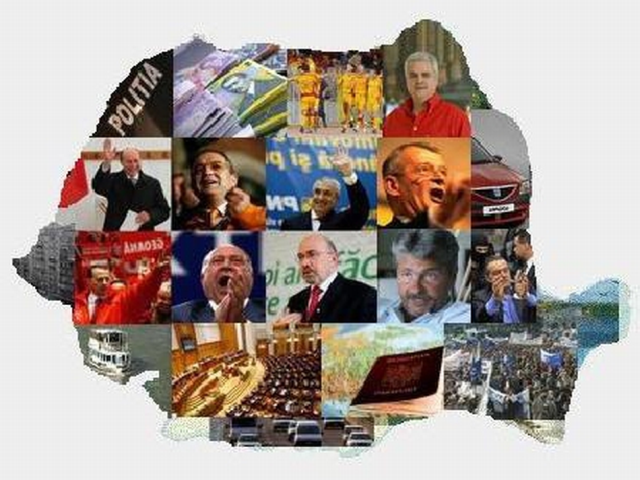November 12-19
A review of the week's main stories.

Leyla Cheamil, 19.11.2016, 14:01
Romania sees record economic growth
Romania’s economic growth in the first 9 months of this year stood at 4.9% and also mirrored in the citizens’ living standards, Romanian Finance Minister Anca Dragu said on Thursday. She also said that this growth was the biggest in the EU and that the main economic indicators increased significantly as compared to the same period of 2015. Also, according to the head of the Fiscal Council, Ionut Dumitru, in 2017 Romania will have the smallest fiscal revenues in its history, following the decrease in taxes and duties stipulated by the new Fiscal Code. Ionut Dumitru has warned, however, that a further decrease in the level of taxes and duties was likely to cause the state’s dissolution. He has also warned over the risk of the 3% budget deficit target being exceeded.
The bill on the elimination of 102 taxes challenged at the Constitutional Court
Romanian president Klaus Iohannis challenged at the Constitutional Court the bill on the elimination of 102 taxes passed by Parliament in October. Initiated by the Social Democratic Party, the bill stipulates the elimination, as of January 1st 2017, of the environment stamp duty for vehicles, the tax for issuing provisional passports, the radio and TV licence fee, and the fee for issuing fiscal records, among others. In a note sent to the Courts magistrates, Iohannis says the bill departs from constitutional norms related to the principle of the separation of powers and legality, the governments relationship with Parliament and the role of the executive. The initiator of the law, Social Democratic leader Liviu Dragnea has described president Iohannis decision to challenge the constitutionality of the law as an exclusively political one. For their part, the Liberals agree with most of the provisions of the bill but argue that the environment stamp duty and the radio and TV licence fee need to be maintained. The elimination of the latter has sparked heated debates of late. Its supporters say that doing away with the fee and funding the public broadcasting services exclusively from the state budget could lead to their political subordination. The Court has set December 14th as the date for giving the verdict on the presidents challenge.
PM Dacian Ciolos presents a government’s activity report after one year of mandate
A year after the installation of his Cabinet, the technocratic PM Dacian Ciolos says that the government’s main objective has been to ensure political, economic and social stability in an election year. It paid special attention to the healthcare and education fields, and managed to unblock several infrastructure projects. The Government focused on social policies and on creating jobs. On the other hand, PM Ciolos said that relationship between the public administration and the political system needed to be clarified.
Reactions after the presidential election in the neighbouring Moldova
Romanian President Klaus Iohannis believes that the neighbouring Republic of Moldova, a former Soviet republic with a majority Romanian-speaking population, should keep making efforts to get closer to Europe while its newly-elected president should proof wise and balanced in his new capacity. President Iohannis’s statement comes after the recent victory in the Moldovan presidential elections of the pro-Russian Socialist Igor Dodon against Maia Sandu, a pro-European reformer. Romania needs to redefine its relationship with Moldova, Iohannis has also said, in the sense that Bucharest will have to preserve and protect the special character of this relationship, by supporting Moldovan institutions and not individuals. In turn, Romanian Foreign Minister Lazar Comanescu who has attended, this week, the Foreign Affairs Council meeting in Brussels, has pleaded for Moldova’s continuing the promised reforms.
Arrest orders have been issued in corruption cases
Rulings have been issued this past week in several corruption cases. The former euro MP Adrian Severin received a definitive sentence to 4 years in prison for bribe taking and influence peddling. A former foreign minister and ex-president of the OSCE Parliamentary Assembly, Adrian Severin was accused of having accepted to receive 100 thousand euros annually from several journalists with the Sunday Times British publication, who were making an undercover investigation, in exchange for proposing amendments to the expert committees of the European Parliament. In another development, on Wednesday, the president of the Permanent Electoral Authority in Romania, Ana Maria Pătru, was remanded into custody being charged with influence peddling and money laundering. Indicted for having favoured a company from which the Authority bought computer software, Ana Maria Pătru announced her resignation. Also this past week, Adrian Sanda, the former head of the Secretariat for the recognition of the merits of the people who fought against the Communist regime instated in Romania between 1945-1989, was arrested for 29 days in a case related to the illegal granting of the title of fighter in the 1989 revolution.
(Translated by Elena Enache)



























